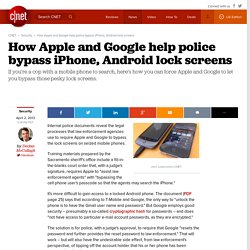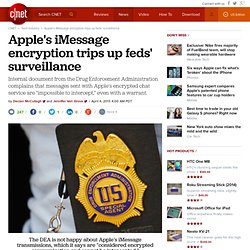

Adobe Creative Cloud Servers Back Online After 27 Hour Outage. May 16th, 2014 by Nate Hoffelder · No Comments · Adobe Adobe has provided a graphic demonstration of the problems with relying on cloud services for core functions.

Starting late Wednesday night, and continuing well into Thursday, Adobe suffered from an unexpected server outage. Many users of the cloud-based FormsCentral, Photoshop Illustrator, TypeKit, and other Adobe tools were unable to log in and get work done. (This, in spite of previous claims by Adobe that users would be able to access the services for up to 3 months while offline.) From some user reports, this outage also affected installed desktop apps such as InDesign and Photoshop: “Several [Creative Cloud installations] in our office have been down for over 10 hours here,” user @Rikki_B told MacUser via Twitter on Thursday morning.
Adobe had launched the new suite of Creative Cloud-only apps and services last May, including Photoshop CC, InDesign CC, Illustrator CC, Dreamweaver CC, and other apps. Jacob Appelbaum Doesn't Have Much Hope for the Future of Privacy. Jacob Appelbaum in Berlin. Jacob Appelbaum has been called the "most dangerous man in cyberspace". But he's not, and it's a tag that pisses him off more than anything else. In reality, Appelbaum is just a cyber-security expert who happens to be one of the develops for the Tor Project, as well as collaborating with WikiLeaks – recently co-authoring a book with Julian Assange – and working with Edward Snowden confidante Laura Poitras on the NSA links for Der Spiegel. In 2010, he became a target of the US intelligence services due to his links with WikiLeaks and has been detained and had his electronic equipment seized a number of times.
Not particularly fond of the persecution he was facing in the States, Appelbaum moved to Germany, where he has been approached by almost all the main German political parties as a computer expert, and has been consulting on films dealing with cyber-surveillance and the current digital rights climate. Facebook goes out of its way to irritate and annoy its users, again. Another Facebook redesign, and yet another demonstration of how little respect Facebook has for its own users.

This time around, Facebook has gone out of its way to make clear that the company really, really, really doesn’t want people to read their News Feeds in chronological order. Earlier this week, Facebook rolled out version 10.0 of its iOS mobile app. The complaints started immediately. How, people asked, do we reset the News Feed from “Top Stories” — in which Facebook’s algorithm chooses what you see, in a mysterious order known only to God and Mark Zuckerberg — back to “Most Recent” — in which items are posted in chronological order? Stop me if you’ve heard this before.
But in the past the changes have been minor. Tthis time, Facebook did a number on its users. 1) Click on the “More” button at the bottom right hand corner of your screen. Google Opt Out Feature Lets Users Protect Privacy By Moving To Remote Village. Police push for warrantless searches of cell phones. When Christian Taylor stopped by the Sprint store in Daly City, Calif., last November, he was planning to buy around 30 BlackBerry handhelds.

But a Sprint employee on the lookout for fraud grew suspicious about the address and other details relating to Taylor's company, "Hype Univercity," and called the police. Taylor was arrested on charges of felony identity fraud, his car was impounded, and his iPhone was confiscated and searched by police without a warrant. How Apple and Google help police bypass iPhone, Android lock screens. Internal police documents reveal the legal processes that law enforcement agencies use to require Apple and Google to bypass the lock screens on seized mobile phones.

Training materials prepared by the Sacramento sheriff's office include a fill-in-the-blanks court order that, with a judge's signature, requires Apple to "assist law enforcement agents" with "bypassing the cell phone user's passcode so that the agents may search the iPhone. " It's more difficult to gain access to a locked Android phone. Apple deluged by police demands to decrypt iPhones. Apple's iMessage encryption trips up feds' surveillance. Encryption used in Apple's iMessage chat service has stymied attempts by federal drug enforcement agents to eavesdrop on suspects' conversations, an internal government document reveals.

An internal Drug Enforcement Administration document seen by CNET discusses a February 2013 criminal investigation and warns that because of the use of encryption, "it is impossible to intercept iMessages between two Apple devices" even with a court order approved by a federal judge. The DEA's warning, marked "law enforcement sensitive," is the most detailed example to date of the technological obstacles -- FBI director Robert Mueller has called it the "Going Dark" problem -- that police face when attempting to conduct court-authorized surveillance on non-traditional forms of communication.
Apple’s iPhone Security Measures Prompt Queue Of Unlock Requests From Law Enforcement. Apple faces a whole lot of inbound requests to unlock iPhone devices from law enforcement officials, according to a new report from CNET.

Seized iPhones with a passcode lock are apparently secure enough to frustrate a lot of police agencies in the U.S., resulting in a wait list that Apple has put in place to help it deal with unlock requests from the authorities. The waiting list was long enough that it resulted in a 7-week delay for a recent request by the ATF last summer, according to the CNET report. MyIDkey: Passwords at the tip of your finger by Arkami, Inc. For press inquiries, please contact media@arkami.com.

Follow myIDkey on Twitter @myIDkey and on Facebook at www.facebook.com/myIDkey. Engadget; Ubergizmo ; CNET ; LAPTOP ; Information Week ; IT Lounge ; Gizmo Envy ; PC Magazine ; Geeky Gadgets ; Digital Trends ; Biometric Update ; TECH Spot ; Digital Reviews ; Cloud Computing ; Science Daily ; YAHOO! The first voice-search, secure Bluetooth / USB drive that displays passwords and ID on the go. How to remember passwords (and which ones you should) At the risk of repeating myself (see “What you don’t know about passwords might hurt you”), the best way to ensure that you never forget your passwords is to offload the task of remembering to a password manager such as 1Password ( ; $40).

For most passwords, most people, and most of the time, that’s the only trick you’ll need. However, no matter what tools you use, you’ll have to memorize at least a few passwords.